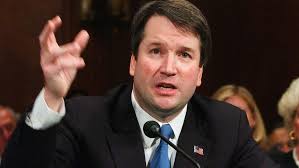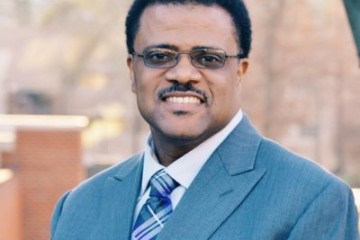Kavanaugh Confirmed
In what will surely go down as one of the biggest Supreme Court Justice nomination battles in United States history, Brett Kavanaugh, former federal appeals court judge, has been confirmed as an Associate Supreme Court Justice as of Oct. 6, 2018.
Former Justice Anthony Kennedy announced over the summer that he would be retiring from his lifelong appointment to the Supreme Court. In response to Kennedy’s retirement, President Trump announced his nomination of Judge Brett Kavanaugh to fill the Associate Justice position on July 9, 2018. Citing great expectations for Judge Kavanaugh, Trump disclosed in a ceremony at the White House that he has high hopes for a man with “impeccable credentials.” No more than a month later, Dr. Christine Blasey-Ford sent a letter to Democratic Senator Dianne Feinstein, the “top Democrat on the Senate Judiciary Committee,” quietly accusing Judge Kavanaugh of sexually and physically assaulting her while they were still in high school. Ford revealed this information to Senator Feinstein, but requested that her name and the information she had disclosed stay private. Following Ford’s request, Feinstein kept Ford’s accusations private.
Shortly following Feinstein’s receival of Ford’s letter, the Senate Judiciary Chairman, Chuck Grassley, announced that the Senate hearings for Kavanaugh’s confirmation would start at the beginning of September. After a debacle between Senate Democrats and Republicans ensued over whether the Republican party was rushing to confirm Kavanaugh before the Supreme Court went into session, confirmation hearings began as planned. They lasted from Sept. 4 to Sept. 7 without any word of Dr. Blasey-Ford’s allegations against Kavanaugh. It was not until Sept. 14 that Ford’s accusations emerged publicly, after Senator Feinstein forwarded the letter to the FBI. That same day, Kavanaugh’s denial of such allegations arose, inspiring a heightened media-frenzy surrounding him and Blasey-Ford.
The Senate Judiciary Chairman postponed the Senate’s vote previously scheduled for Sept. 21 and announced that the Committee would instead hear testimonies from both Ford and Kavanaugh on Sept. 24. From the announcement made by the Chairman on Sept. 17 to Sept. 22, Judiciary Committee attorneys battled with Ford’s attorneys after she declared she would not be prepared to testify the day of the hearings. However, Ford agreed to testify during hearings on Sept. 27, with only three extra days of preparation. That same day, Sept. 23, a report emerged from The New Yorker magazine that indicated a second woman had come forward with sexual assault allegations against Kavanaugh. Three days later, another woman’s allegations against Kavanaugh went public. Kavanaugh revealed he would not be intimated into stepping down from his nomination and fiercely denied all accusations against him. Meanwhile, the media frenzy painted Ford and Kavanaugh in many different ways, allowing for the political party polarization that riddles our country to take sides- victim to victim. The media set up both Democrats and Republicans to take sides on the Kavanaugh versus Ford case, instead of facing the true problem of sexual assault and harassment that plagues so many nations, including the United States.
Sept. 27 rolls around, and the Senate Judiciary Committee heard testimony by both Kavanaugh and Ford, who both offered emotional accounts and reports as to whether such assault occurred or did not. Answering questions from both the Committee and another attorney, Rachel Mitchell, hearings ended for the day. The following day, Kavanaugh’s hearing was scheduled to proceed at 9:30 a.m., with a vote following at 1:30 p.m.. However, a subsequent postponal of a full Senate vote followed his hearings instead. The Senate Judiciary Committee recommended an investigation performed by the FBI into the allegations. Less than a week later, the FBI presented their findings to the Senate Judiciary Committee, concluding that there seemed to be no merit to any allegations against Kavanaugh, citing that the statute of limitations had passed decades ago.
The Senate voted 51-49 to further Kavanaugh’s nomination on Oct. 5, 2018. One day later, Kavanaugh was confirmed as Associate Justice of the Supreme Court of the United States of America. This is a lifelong appointment, and confirmation ensures that, ultimately, unless Kavanaugh retires from his appointment, he will serve in his capacity for the rest of his career.
An important question has been asked on both sides of the Kavanaugh debate. What do Ford’s allegations mean for young men and their future careers, and what does Kavanaugh’s confirmation mean for both male and female victims of sexual assault? Will young men have to fear that their actions as teenagers will affect their careers later in life? Will female and male sexual assault victims still feel empowered to come forward about their sexual assaults, as they had during the #MeToo Movement’s prime? These questions must be answered with time, as there is no way to tell the long term effects of Kavanaugh’s confirmation into the Supreme Court. What we do know, though, is that party polarization is evermore the more prevalent in today’s society. But what is this polarization at the expense of? Our young men, our sexual assault victims, our parties, or our country itself?




